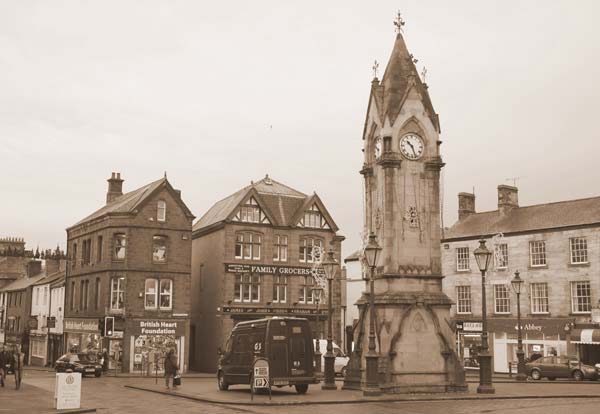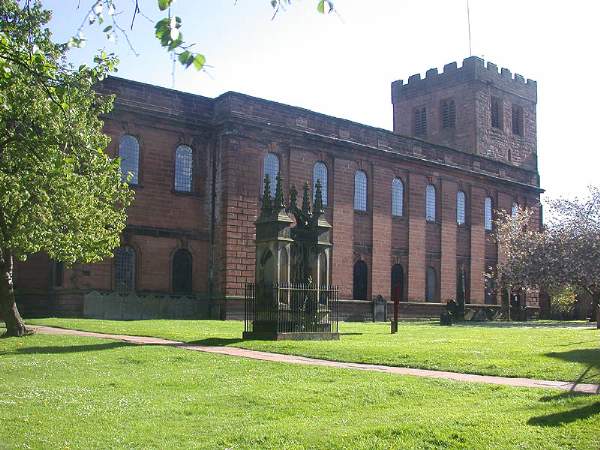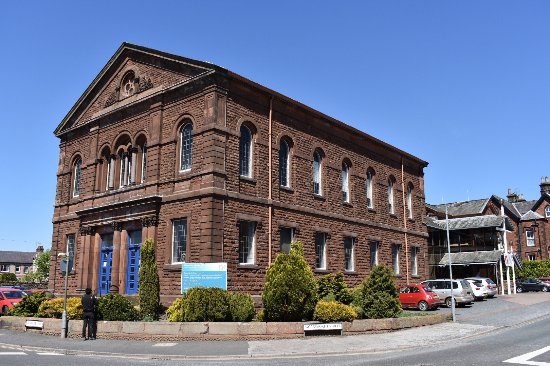History of Penrith Music Club

During the Second World War The Royal Grammar School, Newcastle-upon-Tyne, was evacuated to Penrith. Their music master Arthur Milner ran a series of WEA Music Appreciation classes in the town and in 1944 when the school returned to the North East he and some of his class suggested that a music club be formed. A public meeting was held on 14 June, a committee elected and the first concert given on 28 August – a violin and piano recital by Arthur and Winfred Percival.
Until 1949 most concerts were given in St. Andrew’s Rooms with larger scale orchestral and operatic evenings in the Drill Hall (destroyed by fire in 1963). From 1949 to 1973 the Council Chamber of the Town Hall was used; from 1973 to January 1997 St. Andrew’s Church hosted the concerts and since February 1997 the refurbished Penrith Methodist Church has proved an excellent venue. A lottery grant in 1996 enabled the club to buy a model B Steinway grand piano which lives in the Methodist Church.

In the early years membership rose to 200 and distinguished artists appeared – pianists Kendall Taylor, Hedwig Stein. Iso Elinson, violinists Martin Milner, Marie Hall, cellists Joan Dickson, Florence Hooton, singers Michael Head, Sir Steuart Wilson, David Franklin and Early Music pioneers Carl Dolmetsch and Joseph Saxby. George Thalben-Ball gave an organ recital in St. Andrew’s Church and in 1947 a young cellist who replaced an indisposed colleague was much praised – John Kennedy, father of Nigel …

Nowadays the season’s programme consists of six concerts featuring experienced international performers and young emerging talent. Since 2005 the Club has benefitted from the Arts Council Orchestras Live scheme which has enabled distinguished chamber orchestras to perform each year, often with an outstanding soloist.
Our fine Steinway piano is heard to great effect in solo recitals, chamber ensembles and vocal recitals. The Club also has a Piano Circle whose members meet monthly. The Piano circle organises master classes and an annual concert by talented young musicians from the RNCM Junior Department.
The Early Days of Penrith Music Club
2019 marked the 75th anniversary of the foundation of Penrith Music Club. John Upson (who was secretary of Penrith Music Club for over 40 years) writes of those early days.
Seventy-five years ago the Second World War was turning in favour of the Allies and a new national confidence in the future was growing. In Penrith a group of music lovers attended WEA music appreciation classes run by Arthur Milner, music master of the Royal Grammar School, Newcastle-upon-Tyne. The school had been evacuated to Penrith during the war but was about to return to the North East. He it was who proposed the idea of forming a Music Club to cater for the wider community.
Eight days after D-Day on 14 June 1944 a public meeting was held in Christ Church Rooms, chaired by Mr. R.A.Chadwick. Mr. Milner explained the idea of a music club – promotion of concerts by visiting artists and music making by members themselves. Penrith Music Club was formally established and a committee elected – president Mr. Chadwick, secretary Mrs. Daisy McEune and treasurer Mr. Stanley Dutton. The first concert soon took place – on 24 July 1944 in St. Andrew’s Parish Rooms; after a general meeting a reception was held and a musical entertainment of instrumental and vocal items given by Club members and the Townswomen’s Guild Choir, conducted by Mrs. McEune.
During the first year the committee worked assiduously to organise concerts and set up the club’s business arrangements. Seventeen committee meetings were held to discuss many things, of which one still sounds similar – pianos. An upright and grand were available at St. Andrew’s Parish Rooms and there was a grand piano in the Drill Hall (burnt down in 1963), but at this early stage acquiring our own piano was already being considered. Enquiries were made to the Alhambra Picture Hall to purchases their grand – but it was not for sale. However, by 1946 a fund was started to buy a Rudibach grand piano for £200. Arthur Milner was still in touch with the Club and recommended it as a good instrument. It lasted quite a time and by 1969 was kept in the Town Hall Council chamber, where our concerts were given. In 1973, when the concerts moved to St. Andrew’s Church, a fortunate donation of the Broadwood grand that still lives in the church coincided with the move and served the club well until 1996 when the splendid model B Steinway was produced with National Lottery funding and was installed in the newly-refurbished Penrith Methodist Church.
Back in 1944 members would have only dreamt of acquiring such a fine piano; what is remarkable is the range of piano repertoire that was performed in the early days when war-time rationing and austerity still affected people’s lives. The first professional concert was a violin and piano recital by Arthur and Winifred Percival in August. In September a lecture-recital on French song was given by Mlle Thérèse Lauvaden (Gold Medallist, Conservatoire of Geneva). Another lecture-recital followed in October – on Grieg by Dr. Wadely, Organist of Carlisle Cathedral.
1945 started on January 27 with an impressive recital by the Cecilian Trio – a Mozart piano trio and Tchaikovsky’s gargantuan Trio plus solo items. The pianist Ella Pounder was a pupil of Solomon and a well-known teacher in Middlesbrough. A few months ago Gwen Wilson, a long-serving committee member, discovered a signed concert programme in an old QEGS book from the 1940s – a recital of music by Schubert given by the Pounder Quintet and Daisy McEune (soprano) but with no mention of date or venue. A trawl through the Herald back pages in Penrith Library revealed that the concert took place in St. Andrew’s Rooms at 3pm on Tuesday 29 May, 1945 – an attractive menu of piano solos, lieder and the Trout Quintet. It was not a Music Club event but it was aimed at a young audience – “Special tickets at one shilling for School Children in parties” – surely evidence that live music was doing well in Penrith as the war was coming to an end.